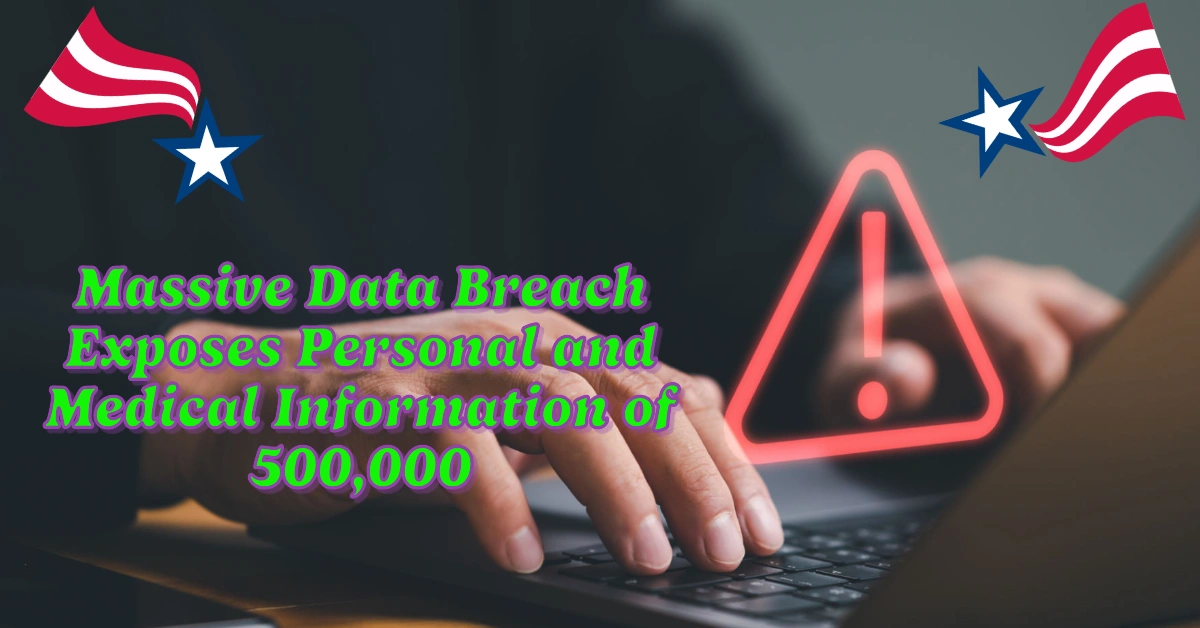In one of the largest healthcare data breaches of the year, the personal and medical information of nearly half a million patients has been compromised after hackers breached the Center for Vein Restoration (CVR), a prominent medical clinic based in Maryland. The breach, which was discovered in early October, has left victims vulnerable to identity theft, fraud, and malicious phishing scams. This breach highlights the severe risks posed by attacks on healthcare institutions, where sensitive data can have long-lasting and far-reaching consequences for individuals.
Table of Contents
What Happened in the CVR Data Breach?
CVR, a well-known network of over 110 clinics across the United States, detected unusual activity in its systems on October 6, 2024. An investigation revealed that cybercriminals had gained unauthorized access to CVR’s databases, stealing not just personal information but also highly sensitive medical records.
According to the U.S. Department of Health and Human Services Office for Civil Rights, more than 445,000 individuals had their personal data exposed during the breach. The stolen data includes a wide range of personal and medical information, including:
- Personal Information: Addresses, dates of birth, Social Security numbers, driver’s license numbers, and financial details.
- Medical Data: Medical record numbers, diagnoses, lab results, medications, treatment information, and health insurance details.
- Treatment Details: Provider names and dates of treatment.
The breach is particularly concerning because CVR’s focus on vein restoration means that it collects detailed medical histories, further amplifying the value and sensitivity of the data exposed.
Missed the Cash App Class Action Settlement Deadline? Here’s What You Need to Know Next
$100 Walgreens Million Settlement in Prescription Pricing Class Action: Eligibility & Payout
5 Million Americans Hit by Massive Credit Card Data Leak: Here’s How to Protect Yourself
Capital One Bank Settlement 2024: Payouts, Eligibility, and Key Dates
Why Is This Data Breach So Dangerous?
While data breaches in other sectors often involve contact information or financial details, healthcare breaches are far more severe due to the nature of the information involved. Stolen medical records are permanent, and the consequences of having this information in the hands of cybercriminals can be devastating. Criminals can use stolen medical records to:
- Commit Identity Fraud: Obtaining prescription drugs through false insurance claims.
- Target Victims with Phishing Scams: Cybercriminals can exploit detailed knowledge of a victim’s medical history to craft highly targeted and convincing scams.
- Commit Medical Fraud: Using stolen information to acquire medical services or prescriptions in the victim’s name.
The stolen medical and financial information can also be sold on the dark web, where it is highly sought after by criminals.
Steps You Can Take to Protect Yourself
If you were affected by the CVR data breach or are concerned about similar incidents, it’s important to take proactive steps to protect your personal and medical information. Here are some key measures to help safeguard your data:
1. Monitor Your Financial and Medical Accounts
Regularly check your financial statements and medical records for any unusual activity or unauthorized charges. Many healthcare providers offer online patient portals where you can access your medical records and track treatment history.
2. Use Strong Passwords and Enable Two-Factor Authentication
Create strong, unique passwords for your online accounts, particularly for healthcare portals. Utilize two-factor authentication (2FA) to add an extra layer of security, ensuring that only you can access your accounts.
3. Be Wary of Phishing Scams
Scammers may use the information from the breach to send phishing emails or phone calls that look like legitimate communications from healthcare providers or insurance companies. Always verify the identity of the person or organization contacting you before providing any personal information.
4. Sign Up for Identity Theft Protection
Consider enrolling in an identity theft protection service. These services can monitor your personal information and alert you to potential threats, helping you respond quickly to fraud or misuse of your data.
5. Freeze Your Credit
Consider placing a credit freeze on your accounts with the major credit bureaus to prevent anyone from opening new credit accounts in your name. This can be done for free and can help mitigate the risks of identity theft.
6. Remove Your Personal Data from the Internet
If you’ve been affected by a data breach, it’s a good idea to use a personal data removal service. These services can help remove your personal information from websites and data brokers, reducing the likelihood of your information being used for malicious purposes.
Equifax Data Breach Settlement: Amount, Deadlines and Compensation
Claim Your Cash: $3.65M T-Mobile Employment Class Action Settlement
$16 Million Capital One Settlement: Are You Eligible for a Payment or Credit?
$2M Bosch Home Appliances Class Action Settlement 2024: Claim Cash or Extended Benefits
Final Thoughts: The Growing Risk of Healthcare Data Breaches
The CVR data breach serves as a stark reminder of the growing risks posed by cyberattacks targeting healthcare providers. As these breaches expose not just financial information but also deeply personal medical records, the potential consequences for victims are severe and long-lasting. Whether or not you’ve been directly affected, it’s crucial to take proactive measures to protect yourself against identity theft and fraud. Regularly monitor your accounts, use strong security practices, and stay vigilant for phishing attempts.
